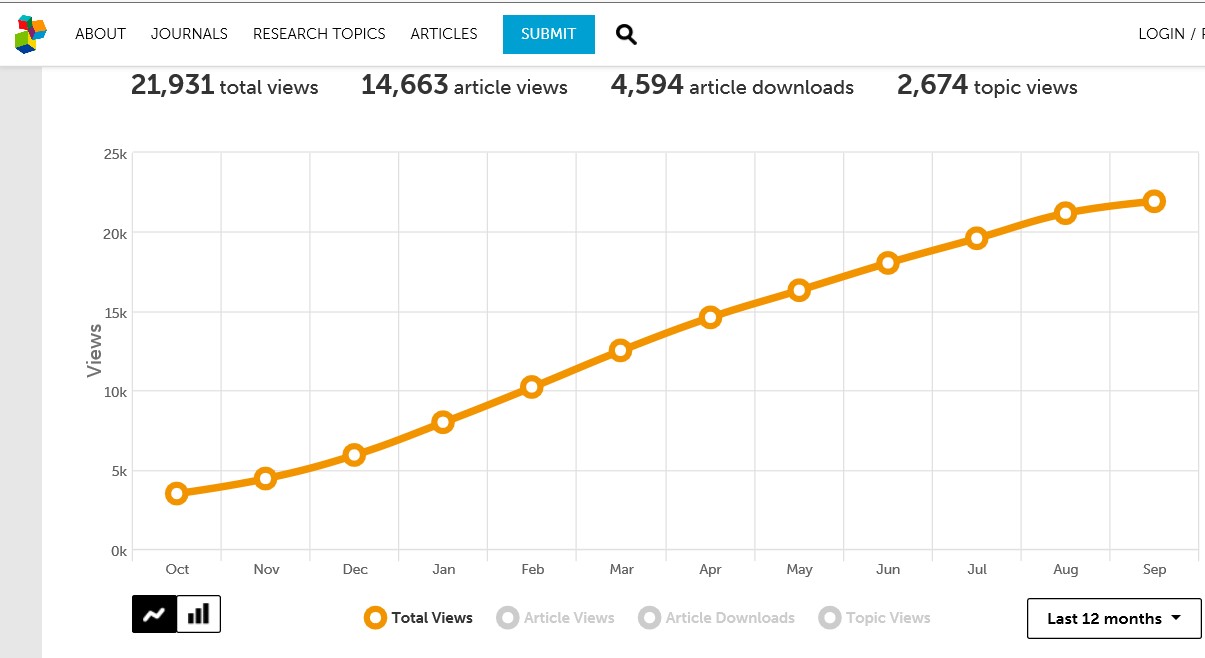
Newsroom
IHB Associate Professor Edits a Research Topic in Frontiers in Immunology
Dr. WU Nan, a member of Research Group of Aquatic Bioinformatics at the Institute of Hydrobiology (IHB) of the Chinese Academy of Sciences, was invited to edit a research topic related to fish intestinal mucosal immunity in Frontier in Immunology, entitled "Gastrointestinal immunity and crosstalk with internal organizations in fish".
So far, the special issue has recruited 13 research papers successfully published, including both research reports and review papers. In September 2021, the Editorial written by Nan’s guest editor team was accepted and published online, suggesting a perfect ending for this special issue. Now, the research topic has officially published in the regular issue of Frontiers in Immunology (with an impact factor of 7.561 in 2020), in the form of article collection, and also is on the way to form an E-Book.

At the beginning of 2020, Nan was invited as the lead guest editor of Frontiers in Immunology to organize an international editorial team for a research topic, since that her representative paper "Fish gut-liver immunity during homeostasis or inflammation revealed by integrative transcriptome and proteome studies" attracted wide attention.
The guest editor team members included Prof. Rune WaagbØ from Institute of Marine Research in Norway, Prof. Carmen G. Feijoo from Andres Bello University in Chile, Prof. WAN Min from Ocean University of China, and Prof. JIANG Weidan from Sichuan Agricultural University in China.
Recently, fish mucosal immunity has gradually become a hot spot in the basic study of aquaculture disease control. Mucosae is not only the physical barrier that separate teleost fish body from the environment, but it is armed with a complex network of cellular and humoral factors of innate and adaptive immunity, which work in coordination to protect them from infection or inflammation in a pathogen rich aquatic environment. Fish intestinal mucosal system is involved in the disease-control of water pathogens, as well as the induction of oral tolerance to dietary antigens and microbiota.
To do so, the different immune cells that form part of the gut associated lymphocyte tissue (GALT) are distributed in the intestinal epithelial layers (IEL) and lamina propria (LP), and from there detect innocuous and harmful antigens as well as interact with the mucosal microflora. Cytokines, chemokines and antibodies that reach blood circulation after immune response has been triggered in the gut, could stimulate other organs, such as liver, spleen and kidney.
Although the local mucosal immune response could repress the infection process to a certain extent, the systemic and mucosal innate and adaptive immune cells or molecular components activated in the gut upon stimulation will still interact with other internal organs.
To demonstrate the crosstalk between fish intestinal mucosal immune response and the impact from internal organ, the guest editors in the team widely collected research papers and abstracts from international scholars who study immunology or do nutritional research in fish. The well-known experts, for example, Prof. Uwe Fisher from Friedrich Loeffler Institute in Germany, Prof. CHEN Xinhua from Fujian Agriculture and Forestry University, Prof. LI Jun from Superior Lake State University in USA, have been invited to conduct peer review.
Thanks to the 12 months’ efforts from editors, reviewers and contributors, advances in the research of gastrointestinal immunity and its associated inter-organ crosstalk included in this issue provide novel and central data to improve the understanding of mucosal immune barrier function in teleost fish.
New insights related to intestinal mucosal immune regulation are key aspects when designing better diets formulations and new mucosal vaccines, as well as genetically facilitated infection control and prevention. Eventually, deep knowledge of the regulation of intestinal immune homeostasis will enhance fish health and further guarantee an efficient growth performance in a long-term perspective.
It is expected that the aquaculture research community will find this collection of articles within the gastrointestinal immunity topic informative and inspiring.
